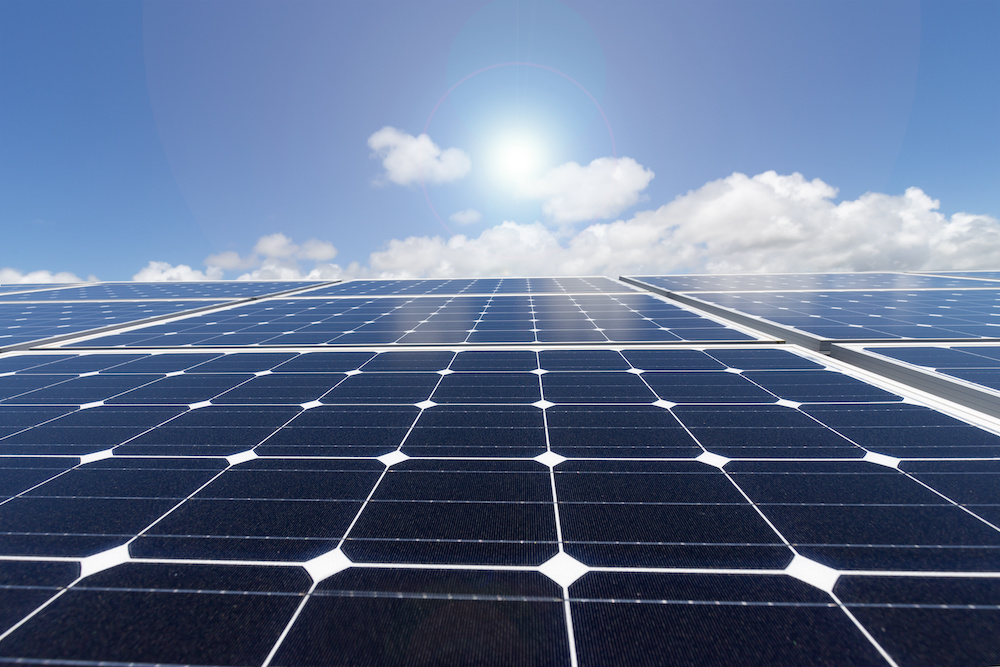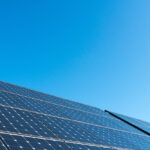On November 27, 2023, Japan’s Ministry of Economy, Trade and Industry (METI) and the Ministry of the Environment (MOE) held the sixth meeting of the Study Group on the Disposal and Recycling of Renewable Energy Generation Facilities.
Summary
In previous study group sessions, the group conducted hearings with various stakeholders on the anticipated mass retirement of solar power generation facilities, including solar panels. For example, they discussed planned responses for the projected peak of solar panel disposal and challenges with recycling and waste management. Based on these hearing results, during the sixth session, the committee reviewed basic principles for future consideration and points to be examined, prepared by the Secretariat. While providing comments and feedback, the committee agreed on the overall direction.
Hearing Results: Challenges
The Secretariat compiled hearing results that included current systems for disposing of and recycling solar power generation facilities, current and expected challenges, and directions for future consideration. Below is a summary of the challenges.
[Cross-sectoral issues]
- Currently, many solar panels are disposed of after being damaged by disasters. However, disposal of solar panels at the end of their lifespan will peak in the future, and strategic planning is necessary to address this issue.
- Currently, there are no mechanisms to ensure the traceability of solar panels from the manufacturing to the disposal/recycling stage.
- There is a need to develop a system where stakeholders at each value chain stage can access accurate information regarding the components and disposal of solar panels.
[Manufacturing, importing, and sales phases]
- Some solar panels are not necessarily designed to be easy to recycle, and in some cases, resources recovered through recycling are not utilized.
- Although each solar panel has a serial number, managing solar panels comprehensively (e.g., based on locations and types) is challenging.
[Operation to termination phases]
- In Japan, where power generators must submit a business plan and obtain a certification from METI to start a FIT/FIP project, records on FIT/FIP projects are maintained. However, insufficient information is available for non-non-FIT/FIP projects.
- Even for FIT/FIP projects, only information related to business plans is available. When solar panels are replaced, information on new panels is managed with the respective business plans. However, information on disposed panels is currently not managed.
- FIT/FIP projects are subject to the mandatory reserve system to secure decommissioning costs of solar power facilities, except for PV systems below 10 kW, which are expected to be disposed of along with buildings. However, some non-FIT/FIP projects are not covered by the decommissioning cost reserve system.
- Solar panels fall outside the scope of the Electricity Business Act upon the termination of electricity operations. However, if used solar panels are left abandoned, it may result in inadequate dismantling and removal of power generation facilities. In addition, used solar panels may not immediately fall under the category of waste. In these cases, used panels will be outside the scope of the Waste Management Law.
[Long-term utilization and reuse]
- Continuing power generation over the long term is desirable for reusing the land and systems of power generation facilities. For example, appropriate maintenance and equipment upgrades are desirable. According to surveys conducted by a trade association, most operators are considering continuing operations beyond the FIT period. However, results show that the decision to continue operations may also depend on the conditions related to electricity sales.
- During the hearings of this study group, concerns were raised about the possibility of used solar panels being exported improperly without undergoing performance inspections.
- While some businesses offer performance inspections of used panels as part of their recycling services to determine whether they can be reused, there are currently no established standards for performance inspections.
[Dismantling/removal and collection/transportation]
- Dissemination of dismantling procedures and precautions is still insufficient as there have not been many actual dismantling and removal of solar power generation facilities.
- Solar panels must not be damaged upon removal to be recycled, and they must maintain functionality to be reused.
- Solar panels installed on buildings rather than in open fields have risks of being dismantled together with the buildings as an integrated structure.
- Solar panels, including residential solar panels, are removed irregularly at various locations. The inefficient collection and transportation results in high costs.
[Recycling]
- There are various methods for disposing of solar panels, including landfill disposal after shredding and recycling by separating materials. However, under existing laws in Japan, there are currently no regulations for recycling solar panels. As a result, some businesses choose a disposal method solely based on cost considerations.
- Regional differences exist in the number of facilities capable of recycling solar panels.
- Depending on the recycling method, the quality of the collected materials, recovery rate, and the applications of recycled resources vary.
- Some materials contained in solar panels, such as silicon and plastics, are not being recovered or utilized as recycled materials.
Directions for future consideration
Based on the hearing results, the Secretariat proposed the below principles for future consideration.
1) Coexist with local communities
- 1-1: Promote the reuse and recycling of renewable energy generation facilities to reduce final disposal volumes.
- 1-2: Based on the conditions of each area, aim to establish a cross-sectional mechanism that applies to various project stages, types (including non-FIT/FIP projects), and sizes.
- 1-3: Develop a nationwide framework while building efficient local models for disposal and recycling tailored to each area’s needs.
2) Promote collaboration among stakeholders throughout the lifecycle
- 2-1: Seek power generators and other stakeholders to responsibly manage renewable energy generation facilities until disposal and recycling.
- 2-2: Aim to develop commercially viable recycling models based on a circular economy approach by encouraging collaboration among all players throughout the lifecycle.
3) Efficient and effective initiatives/Minimize social costs
- 3-1: Nurture businesses related to disposal and recycling and enhance collaboration with them. Implement initiatives to ensure the predictability of related businesses.
- 3-2: Utilize digital technologies efficiently to minimize costs.
Points to be examined
The study group will examine the following points in future sessions.
1) Information management: Managing information on renewable energy generation facilities and power generation businesses
- 1-1: Methods of managing information regarding solar power generation facilities based on existing regulations, installation types (roof-mounted or ground-mounted), and business models (FIT/FIP or non-FIT/FIP).
- 1-2: Content and use of information to be managed and shared
2) Goods: Establish mechanisms for proper reuse and recycling
- 2-1: Mechanisms to prevent abandonment and ensure safe dismantling of facilities after termination of power generation operations.
- 2-2: Contingency plans for cases where facilities are abandoned or the whereabouts of power generators are unknown.
- 2-3: Mechanisms to facilitate efficient collection and transportation as well as proper reuse and recycling.
3) Costs: Ensure adequate financing for recycling and proper treatment
- 3-1: Mechanisms to secure funds for recycling and information management of renewable energy generation facilities, including non-FIT/FIP projects, while considering existing systems, such as the decommissioning cost reserve system.
- 3-2: Mechanisms to ensure recycling costs and other costs are distributed to appropriate entities.
- 3-3: Others (various support measures to enhance the business viability of recycling efforts)
Study Group on the Disposal and Recycling of Renewable Energy Generation Facilities – 6th Meeting (in Japanese)


